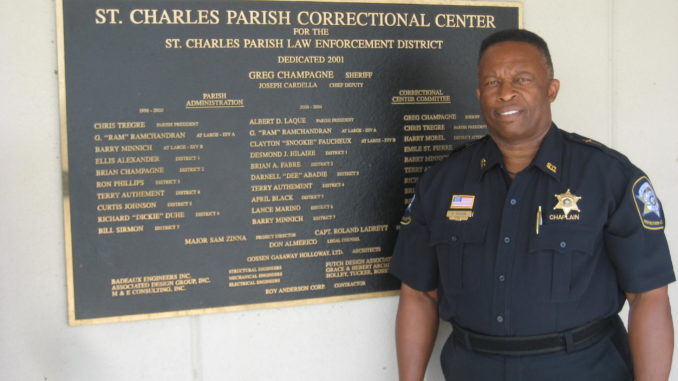
Since its inception in 2005, Project Transition has become an important lifeline for inmates at the Nelson Coleman Correctional Center, giving them the skills and training they need to cope with the outside world.
And nothing illustrates the success of the program better than the results – 97 percent of the over 300 inmates that took the eight-week course have stayed out of trouble since their release. That compares to the national rate of 67.5 percent of inmates that relapse into a life of crime after their release.
But Project Transition is just a small part of the big picture. The fact is the Nelson Coleman Correctional Center offers several other free classes five days a week, with the goal of each one to help rehabilitate inmates.
“Project Transition is the only program of its kind in south Louisiana and it provides the opportunity for inmates to receive intervention before they are released, which means they are less likely to return,” Reverend Gary Bolden, the program director and chaplain of the center, said. “But we have several other classes and programs that have also been very successful as well.”
Bolden came to the jail in 1996 after St. Charles Parish Sheriff Greg Champagne tasked him with the job of rehabbing the inmates there.
“The success of all our programs here is because of Sheriff Champagne,” Bolden said. “When he put me in charge of rehabilitation, he told me that he didn’t want to just throw the key away after these inmates were locked up. He wanted them to have a chance to change for the better.”
In 1996, the jail began offering courses to help those inmates rehabilitate. Each of them, which cover topics such as counseling and character building, are taught by professionals with degrees. About 85 to 90 volunteers also help teach the courses.
One such class is inner healing, where a professional psychologist takes inmates back to their childhood and helps them confront any issues they had at that time. The hope is that this will help the inmates get past the time in their life where they first committed a crime.
Additionally, more than 300 inmates have gotten their diplomas through the jail’s GED program, and the center also offers religious services for all denominations as well as Alcoholics Anonymous and Narcotics Anonymous meetings.
In 2005, Project Transition was created. The program consists of an eight-week lineup of life skills courses and substance education classes. Participation in the program is open to high-risk inmates who are within six months of their release. Once they register for the program, the inmates must adhere to strict guidelines like mandatory attendance and good behavior.
But the experience the course offers is well worth it. Classes cover such varied topics as relationship awareness, managing time and money, listening skills and dealing effectively with frustration, anger and doubt.
“The inmates really enjoy the classes,” Bolden said. “Correctional officers have also found that the inmates are a lot calmer since we started these programs and there are less fights, which makes their jobs a little easier.”
Along with the continued support of Champagne, Bolden also cited the help of the community in making these programs a success. The United Way of St. Charles Parish has already contributed $45,000 to the programs, and has added $4,800 to pay for teachers for two new classes – life skills and anger management.
“United Way is great at helping someone when they trip on a crack in the pavement, but we also want to fix that crack,” John Dias, the executive director of UWSC, said. “This program has been so effective at helping these inmates stay out of trouble upon their release – it really does work.”
Bolden is just thankful for the many volunteers, community members and agencies that have pushed these programs towards success.
“I’m a firm believer that our community has what it takes to solve all of our problems,” Bolden said.




Be the first to comment